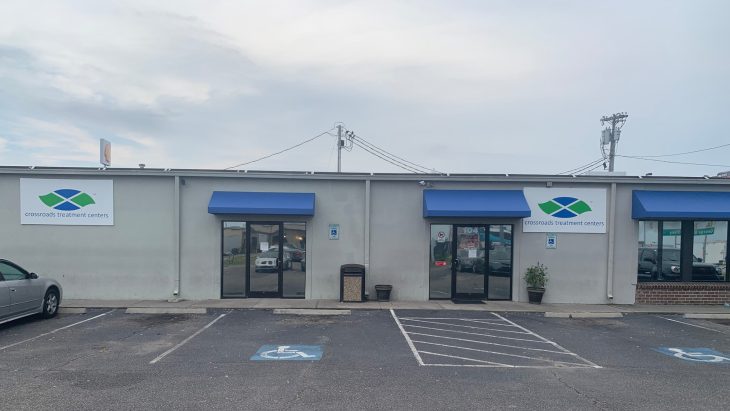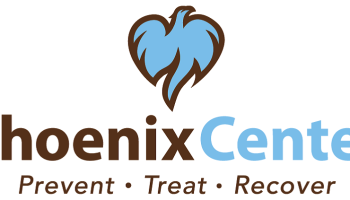Crossroads of Myrtle Beach

About Crossroads of Myrtle Beach
Crossroads Treatment Center of Myrtle Beach, South Carolina helps adults across Horry County and beyond overcome opioid dependence through medication-assisted treatment (MAT). This opioid recovery clinic is located on George Bishop Parkway in Myrtle Beach, just a short walk south of Valor Memorial Garden and about four miles from the Franklin G. Burroughs–Simeon B. Chapin Art Museum.
The facility is CARF-accredited for high-quality and tailored support that adheres to rigorous standards of clinical excellence. This is reflected in numerous testimonials from past clients who express deep satisfaction with the team’s compassionate and life-saving support. One client noted, “Amazing facility,
The staff is awesome and very helpful. This place has saved me from ending up in jail or dead…”
Their same-day and virtual appointments mean you can begin treatment quickly and conveniently without unnecessary delays or long wait times. The facility keeps costs low by accepting Medicaid, Medicare and Medicare Advantage and Tricare alongside several commercial health insurance options.
Medication-Supported Opioid Recovery
Medication-assisted treatment at Crossroads of Myrtle Beach includes a prescription of Suboxone or methadone as part of a personalized recovery plan developed after a thorough intake assessment. These FDA-approved medications ease withdrawal symptoms, curb physiological cravings and help normalize brain chemistry.
You’ll then attend tailored therapy sessions to explore the root causes of your opioid use, develop healthier coping strategies and strengthen your emotional resilience.
Intravenous drug users face a high risk of contracting infectious diseases like HIV and Hepatitis C, primarily due to sharing needles and other injection equipment. If you use IV drugs, your tailored support here will include Hepatitis screening and treatment to ensure early detection, reduce transmission risk and support your overall health as you recover.
They coordinate with and will connect you to community services to help you access housing, employment support and transportation alongside other essentials that reinforce stability in recovery as you move forward.
| Levels of Care | Detox Service Setting | Programs | Payment Options | |||
|---|---|---|---|---|---|---|
|
In outpatient therapy, you’ll attend therapy sessions several times each week while living at home. This is ideal if you have a strong support system and a lower risk of relapse. Outpatient treatment offers flexibility to maintain work, school or family obligations. |
||||||
|
Outpatient detox gives you access to medically supervised withdrawal services while still allowing you to live at home. You’ll attend a clinic for treatment and monitoring. This flexible option is suitable for those with mild to moderate withdrawal symptoms who have strong support systems. |
||||||
|
Adult programs address the substance use and life challenges specific to adults. Therapists can deliver sessions in individual, group and family settings. Services often include job support and life skills training in a structured environment. |
Alcohol detox programs offer medical support to help individuals withdraw safely from alcohol. Your care team may use medications to ease your symptoms and provide medical monitoring to address complications. |
Drug detox programs support individuals who are withdrawing from addictive substances like cocaine and heroin. Medical support helps you manage symptoms in a controlled and safe environment so you can achieve initial sobriety. |
Men's programs address substance use while also considering the social pressures, family roles and mental health concerns that are specific to men. You’ll learn healthy coping mechanisms as you build emotional resilience and develop communication skills. |
Opioid detox uses medications to ease severe withdrawal symptoms. It also includes medical supervision to help you manage potential complications. These services allow you to stabilize and begin a recovery plan. |
Women's programs offer a safe and supportive space to focus on gender specific issues such as trauma, family roles and mental health conditions. Therapists tailor the sessions to address women's needs and foster empowerment in a healing and nurturing environment. |
Young adult programs are designed for individuals who are transitioning into adulthood. Topics of discussion typically include identity, independence and peer relationships. Providers may also offer life skills training and career support. |
|
Self Pay
|
Levels of Care
In outpatient therapy, you’ll attend therapy sessions several times each week while living at home. This is ideal if you have a strong support system and a lower risk of relapse. Outpatient treatment offers flexibility to maintain work, school or family obligations.
Detox Service Setting
Outpatient detox gives you access to medically supervised withdrawal services while still allowing you to live at home. You’ll attend a clinic for treatment and monitoring. This flexible option is suitable for those with mild to moderate withdrawal symptoms who have strong support systems.
Programs
Adult programs address the substance use and life challenges specific to adults. Therapists can deliver sessions in individual, group and family settings. Services often include job support and life skills training in a structured environment.
Alcohol detox programs offer medical support to help individuals withdraw safely from alcohol. Your care team may use medications to ease your symptoms and provide medical monitoring to address complications.
Drug detox programs support individuals who are withdrawing from addictive substances like cocaine and heroin. Medical support helps you manage symptoms in a controlled and safe environment so you can achieve initial sobriety.
Men's programs address substance use while also considering the social pressures, family roles and mental health concerns that are specific to men. You’ll learn healthy coping mechanisms as you build emotional resilience and develop communication skills.
Opioid detox uses medications to ease severe withdrawal symptoms. It also includes medical supervision to help you manage potential complications. These services allow you to stabilize and begin a recovery plan.
Women's programs offer a safe and supportive space to focus on gender specific issues such as trauma, family roles and mental health conditions. Therapists tailor the sessions to address women's needs and foster empowerment in a healing and nurturing environment.
Young adult programs are designed for individuals who are transitioning into adulthood. Topics of discussion typically include identity, independence and peer relationships. Providers may also offer life skills training and career support.
Accreditations
Contact

Chika Uchendu is a multi-niche and seasoned SEO writer with expertise in personal finance, technology and health. He’s had over 10 years of experience creating impactful content that resonates with diverse audiences. His journalism and digital marketing background enables him to combine data-driven analysis with engaging storytelling. This helps drive engagement and grants target audiences access to valuable information.
Chika has worked for Benzinga, Motley Fool, Webopedia and many other popular online media outlets on a freelance and contractual basis. He is using his voice to drive awareness and meaningful change among people dealing with the pandemic of substance use disorder. Chika is an ambivert who enjoys sports, hiking, reading and video gaming.

Courtney Myers writes and edits professionally from her home in North Carolina. She holds an MS in Technical Communication from N.C. State University and has worked in proposal management, marketing, and online content creation. She specializes in creating resources related to behavioral health and addiction recovery.




